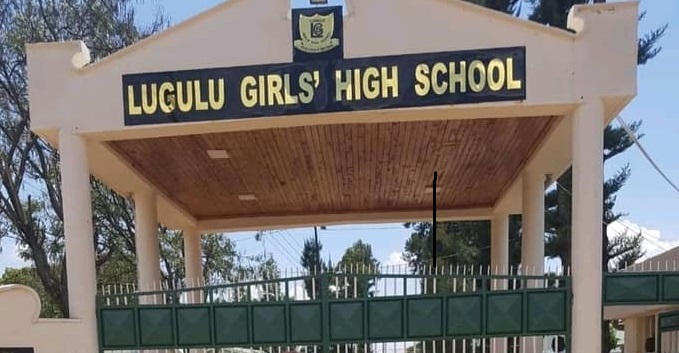Sun Tzu, one of the greatest military strategists and a renowned philosopher said that the greatest victory is that which requires no battle.
He profoundly put it that supreme excellence is breaking the resistance without fighting.
Borrowing from Tzu’s strategy, protecting and conserving our natural resources is a battle that calls for a focused plan to achieve a sustainable future that supports humanity and nature.
That plan should not encompass the use of force, abuse of human rights, and disenfranchised communities whose only crime is calling home a biodiverse rich ecosystem.
Policy shift
The resources that the national government and other stakeholders in the conservation sector currently use for enforcement, especially in our gazetted natural resources like forests, national parks, and reserves could be halved and reallocated to enhance the conservation sector dependent-livelihoods.
But this can only be achieved if the forest, mineral, wildlife-rich areas, and indigenous communities are included in the management of these resources and further empowered to investigate, document, and report cases of destruction and illegal trade of natural recourses like wildlife.
Why spend millions of shillings in deploying armed paramilitary and disciplined forces to protect and monitor what communities understand and have the details of every inch of the landmass, the wild animals, plants, and all the wonders of nature in the conservation area at their fingertips.
Where is the disconnect?
The majority of these groups have coexisted with wildlife sustainably within and around very unique and fragile biodiverse ecological environments for decades.
Where then is the disconnect? They say the decisions that human beings make may have a positive or negative influence on our wellbeing.
Who makes these decisions? Are the communities who bear the brunt of brutal security measures imposed on them as well as the degradation of the only place they call home and, in some cases, even denied access or evicted in the name of securing what they have not destroyed or planned to destroy?
As government and community-led conservancies cut down on their security personnel in various parts of the country due to the Covid-19 pandemic precautions, tourism-dependent businesses are now unsustainable.
Way forward
Kenya’s largely nature-based tourism sector is at the brink of collapse. It is now clear that community-led security systems, coupled with indigenous knowledge and contemporary innovations, is what Kenya and other nature reliant economies across Africa and beyond need.
With a strong integrated wildlife management approach which assimilates community-integrated wildlife security systems, our only worry during the coronavirus crisis would be the economic losses.
I believe the sector and the country will bounce back but once a species is wiped out due to exploitation, illegal wildlife trade and poaching aggravated by the reduction of rangers, community scouts, and other security personnel, there will be no reversing the human-induced destruction. Extinction is forever, it is irreversible.
The importance of ecosystem services and biodiversity for the full enjoyment of human rights is recognized worldwide and so are the rights and the crucial contribution of indigenous people in protecting environmental assets.
But the rights of those who call home such areas of interest continue to be infringed. The same way humans make decisions with regard to biodiversity ultimately affect our wellbeing, security decisions and interventions in such areas also affect the very natural wealth we all strive to conserve and the life as communities know it.
‘Part of nature’
As the biodiversity week comes to a close, it would be prejudicial to us, future generations and nature if we don’t ask this crucial question, does the International Day for Biodiversity theme ‘Our Solutions are in Nature’ apply or will it apply when formulating and implementing policies to boost wildlife security and other natural resources?
The people and communities who live in these unique biodiverse regions across Kenya are ‘part of nature’ and a great security resource.
They are actually assets that the government should channel resources into, to augment their capacity and utilization of their extensive indigenous knowledge and solutions to today’s environmental challenges.
This will ensure that they play a critical role in protecting Kenya’s key income earners sectors which are entirely dependent on nature, like tourism and agriculture; but what defines our identity socially and culturally.
The security of our natural capital cannot be guaranteed by the number of boots on the ground or electric and other security fences around forests and game parks, but by the ability of security forces to inculcate the culture of cooperation and co-management.
This will not only give such security personnel the social license to operate but the wildlife to coexist with communities due to its true value which is quantifiable and equitably distributed.
Forcing citizens to value wildlife is not a good strategy. Citizens enjoying and reaping the benefits of wildlife will make them willingly reciprocate by being ‘pro-bono’ security personnel because they are aware, without wildlife their livelihoods and future will be at risk.
It, therefore, becomes significantly important that the benefits are not only bankable for such groups but they are involved full, in the management of such resources to guarantee inter and intragenerational equity for sustainability and prosperity.
A synchronized purpose, an ultimate mission defined according to international, regional, and national laws coupled with public participation and the localization of conservation security approaches should, consequently, be our new normal.
Major (Rtd) Steve Leakon, CSMP, PCI is a risk and security expert.










